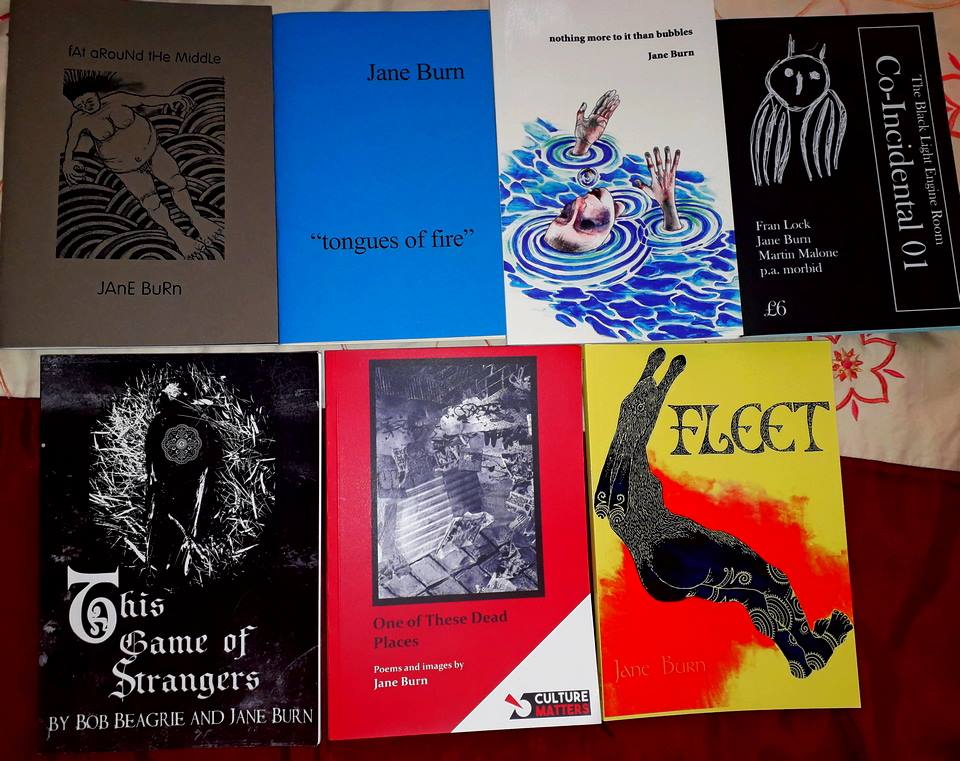
JANE BURN – POETRY AS HARD GRAFT, INSPIRATION, REACTION OR EXPERIMENT?
I interviewed poet & artist Jane Burn who won the Michael Marks Environmental Poet of the Year 2023-24 with A Thousand Miles from the Sea.

I interviewed Marilyn and Howard Timms who run the innovative poetry organisations Frosted Fire & Wildfire Words and are life patrons and active supporters of Cheltenham Poetry Festival. Howard is an actor and playwright turned poet; Marilyn is a lifelong poet; both have decades of experience as professional non-fiction editors and writers
Leslie: What characterises Frosted Fire & Wildfire Words? What’s similar and different about them from other small press publishers?
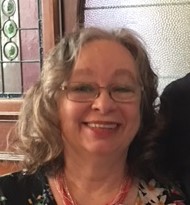
Marilyn & Howard: Frosted Fire publishes printed poetry books and Wildfire Words, an online literary website and ezine. Both channels offer poets opportunities to submit their work for publication by an independent, curating, risk-taking publisher. Our print output is books by first-time-published poet authors. Our online publication is mainly individual poems as text, most of which are now accompanied by audio of their poet reading them.
We are a non-profit making organization, just covering the cost of prizes, printing and admin with income from entries, book sales, and donations.
In two annual Frosted Fire competitions, we offer awards for publication of a first poetry book in the form of a pamphlet or chapbook (a maximum of 40 pages) with 50 free copies and marketing support.
Through eight submission windows, most of which have a theme, we attract about 60 poets per month, generally publish about 70 per cent of submissions, and notify all who submitted poems of the list of successful poets. 2023 will also see the introduction of our first Flash Fiction Competition.
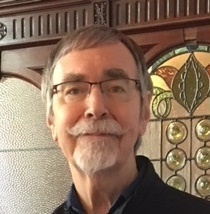
Leslie: How did you go about setting up an independent print publisher? How did the idea start, grow and develop? What have been the successes and problems so far?
Marilyn & Howard With decades of experience as professional non-fiction editors and writers, we developed creative writing as a hobby and approached retirement having had some success in publication or production of our poetry and plays. That lead to involvement in appearing at, then helping manage, Cheltenham Poetry Festival. When cancer struck Howard in 2017, we re-oriented towards supporting the Festival financially with a publishing house based on poetry competitions. The economic impact of the pandemic reduced competition income to little more than covering costs. So, we decided to turn Frosted Fire and Wildfire Words into independent non-profit publishers and widen their scope into printed books and online publishing.
Through competitions and ezine submission windows, we have attracted a wide range of poets from beginners to well-known, successful poets from more than 25 countries. In our four years of existence, we have published at least one poem from more than 250 poets, sixteen printed books, and 9 online anthology collections.
We have a rapidly-growing programme of international online events to launch books anthologies, and individual poems, recording them for publication in Wildfire Words.
Leslie: As life patrons of Cheltenham Poetry Festival, what have been the great, light-bulb moments for you as writers, critics, editors and poetry lovers? What did you learn from those moments?
Howard: As an actor and playwright, a big light-bulb moment was hearing and seeing lots of poetry at the Festival being read — being performed — by its author. By contrast, drama in the UK, is still struggling to bridge the chasm between its literary and acting aspects (except in education). As a playwright, I had been bridging that gap by writing in collaboration with actors, and by performing my own scripts in solo shows. Because of ill health, I swapped to writing and performing poetry, and encouraging others to do so.
Marilyn: Aged 7, I wrote my first epic poem (200 rhyming couplets about a monstrous humanoid living on the Limpopo River.) My light-bulb moment came when, as an adult, I realised the value of “always writing about what you know.” This approach was vindicated when a mere 80-line poem about my sojourn at Slimming World won me a luxury holiday for two in the Caribbean. Performing at Cheltenham’s Literature Festivals and Poetry Festivals is magical. I have received so much encouragement that I feel impelled to encourage others to write, to find the release, relief, and occasional joy that writing can bring.
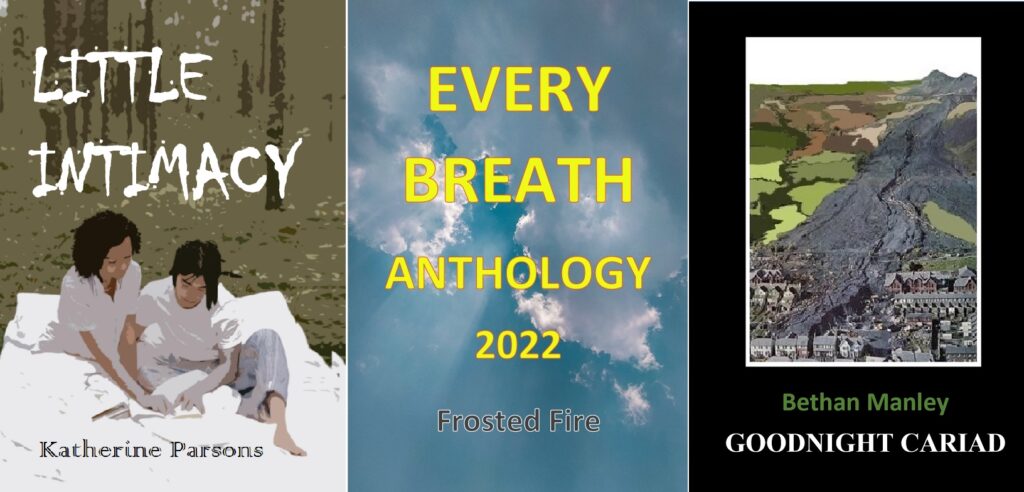
Leslie: Tell us about your own writing. How have life events changed what you write? What have you learned about yourselves from a lifetime in letters/performance?
Marilyn & Howard Life events – many adventures, changes of home, losses of loved ones, and life-threatening challenges — have provided plenty of material for writing. But that also meant that time to finish novels and plays we started was seldom available. But one of those changes did bring the time and the motivation, when Howard was asked to work in Chicago for a short contract which ended up lasting 10 years. Marilyn had to stay in Britain most of that time for family health reasons. We were seldom apart for more than 6 weeks, but both were lonely. Creative writing became a chosen companion. And both of us had some success.
Howard: Three life events provided inspiration for three of my successful plays – one about my mother’s Alzheimer’s disease, one about competing in the Munich Olympics, and one loosely based on my Grandmother’s experiences during World War I.
Marilyn: My daughter commented once, “For a very happy person, Mum does write an awful lot of sad poetry.”She’s right – anti-war protests, loss of loved ones, abuse of human rights, have all coloured my poetry although I do leaven it with farcical monologues and pastoral lyrics. Two brushes with cancer have made me more philosophical, and this too spawned a poetry collection. Over the years, I’ve learned to ignore well-meaning advice about “the correct-and-only way to write poetry” and have given myself permission to speak with many voices and not restrict myself to a single genre. I encourage others to do the same.
Leslie: What are the most important skills that go into running festivals and publishing? How do they differ from the skills of a writer/performer? How do you create time and the right mind/body state to write yourselves?
Marilyn & Howard Most important for both activities are good organising, people, and financial skills, all 3 of which contrast and conflict somewhat with artistic skills. For festivals, much of the time is spent outside the home, waiting, planning, researching, checking venues. Publishing can nowadays be done entirely at home and is more time-efficient. Interaction with other people’s writing is stimulating and often inspiring and harmonises well with artistic and performing skills.
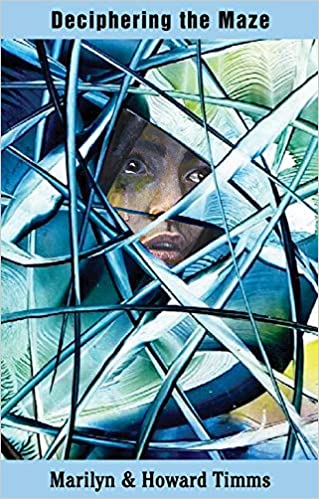
We like sharing poetry and performance with other writers, but often find it difficult to leave time for health maintenance and our own writing. Part of the compromise is that as we confer on the merits of submissions to Wildfire Words. The quality of some submissions will spark our enthusiasm and send us off on tangents of inspiration. Having successfully collaborated with each other on Deciphering the Maze (Indigo Dreams, 2020) our target for 2023 is to produce another poetry collection each or, perhaps, together. We monitor each other to check we do make time to write. Attempting the latest theme in Wildfire Words is a good starting point when the creative muse is proving elusive.
Leslie: As writers and publishers, how do you avoid imitating your own quickly-produced work/likes and aesthetic preferences?
Marilyn & Howard Our aesthetic preferences in choosing poetry to publish (or write) are originality – in content, form, and choice of words. We will accept any well-crafted viewpoint, as long as there is an open or implicit acknowledgement that other, differing viewpoints are available and reasonable.
By well-crafted, we mean text that clearly and consistently follows the style and approach which the poet has apparently chosen, whether or not either or both of us like that approach.
Whether we’re successful in the above balancing acts is for others to decide.
Leslie: How do you avoid, in a time-limited world, the default approach of doing what comes easiest i.e. acting by rote, out of habit, following the current ‘poetic consensus’? Remembering that original work is likely to seem ‘strange’ and outside the ‘norm’, how do you stay fresh, alive, original, creative and open to new voices/creative approaches?
Marilyn & Howard We usually spend more time considering a poem that we eventually reject than one which we publish. We regularly publish poems that we consider strange or incomprehensible, but that we feel at least some of our readers would appreciate and/or like.
An example of us ignoring inconvenience is poetry that is difficult to display exactly as the poet intended, such as extra-wide poems. Most poets will compromise, especially after they have recorded a poem and realize that it works fine through the ear. Where we don’t reach a compromise, we’ll publish with the best presentation technically possible, and attach a PDF version of the poem showing the line breaks or layout the poet originally envisioned. When one of our award-winners had a poem that demanded extra-long lines, we printed two pages in their book at 90 degrees to normal to accommodate this. It is important to us to do everything we can to support our authors.
Next week freelance film/TV editor Lisa Willinger talks about her behind-the-scenes work on Six Feet Under and other cutting-edge TV programmes and films.
ABOUT LESLIE TATE’S BOOKS:

I interviewed poet & artist Jane Burn who won the Michael Marks Environmental Poet of the Year 2023-24 with A Thousand Miles from the Sea.
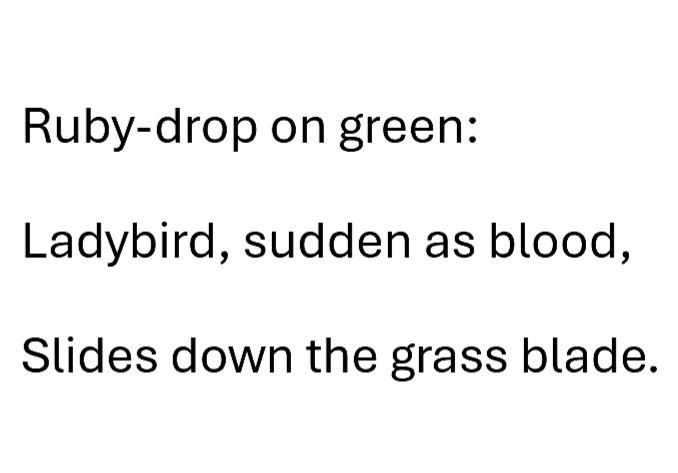
I interviewed ex-broadcaster and poet Polly Oliver about oral and visual poetry, her compositional methods, and learning the Welsh language. Polly says, “I absolutely love
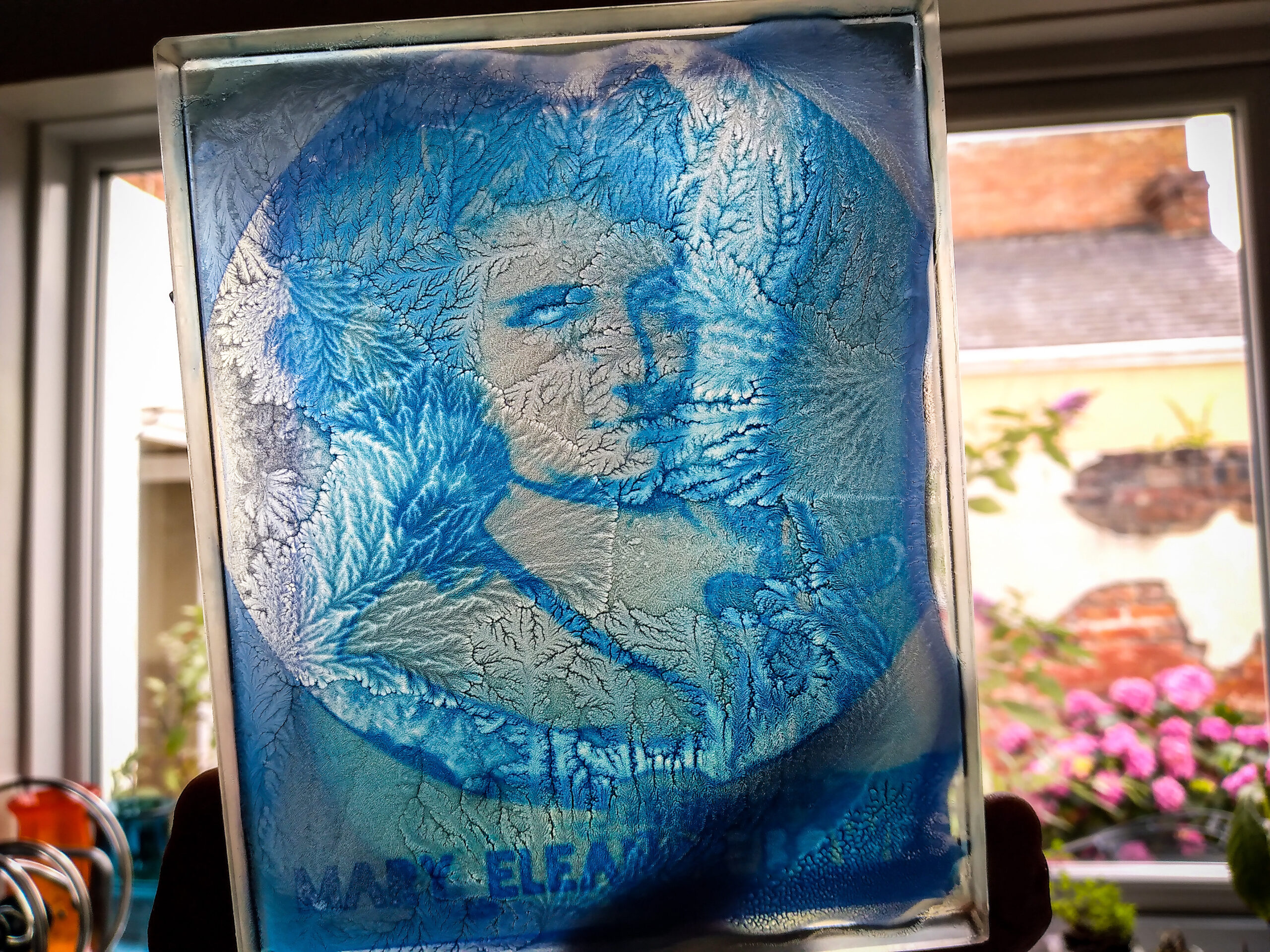
I interviewed Jo Howell who says about herself: “I’ve been a professional photographic artist since I left Uni in 2009. I am a cyanotype specialist.
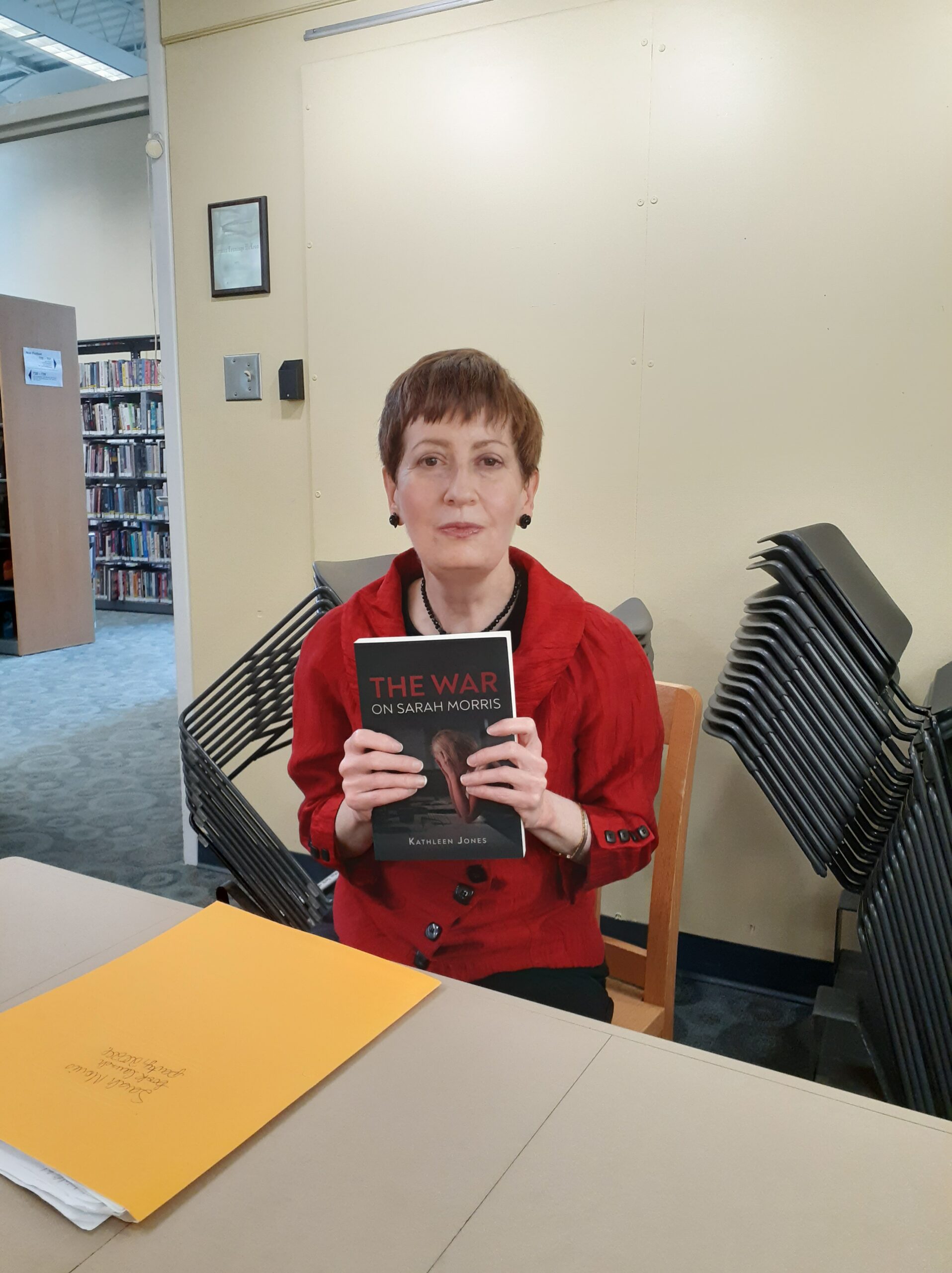
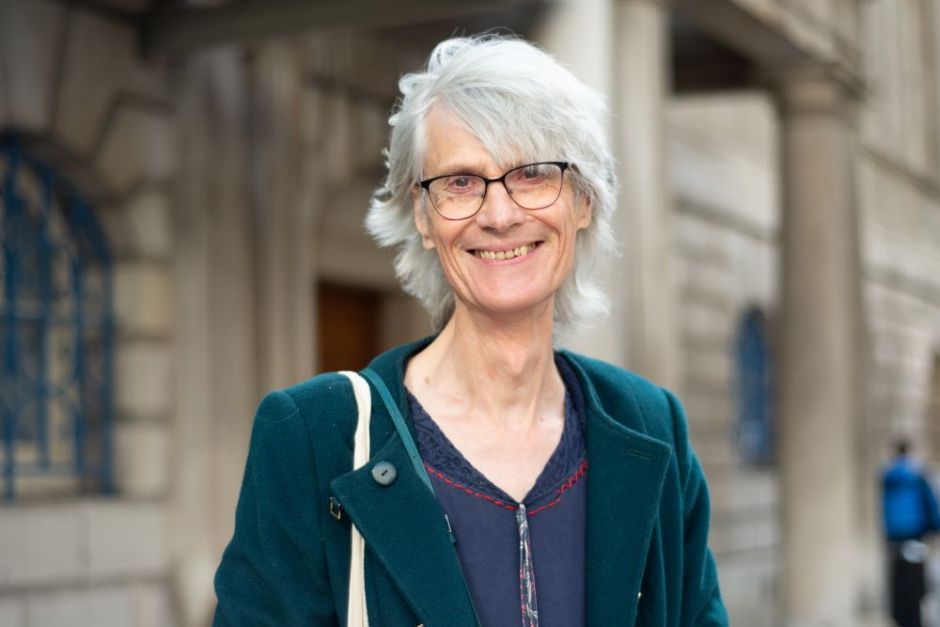
Poet Tracey Rhys, writer of Teaching a Bird to Sing and winner of the Poetry Archive’s video competition reviews Ways To Be Equally Human. Tracey,
| Cookie | Duration | Description |
|---|---|---|
| cookielawinfo-checkbox-analytics | 11 months | This cookie is set by GDPR Cookie Consent plugin. The cookie is used to store the user consent for the cookies in the category "Analytics". |
| cookielawinfo-checkbox-functional | 11 months | The cookie is set by GDPR cookie consent to record the user consent for the cookies in the category "Functional". |
| cookielawinfo-checkbox-necessary | 11 months | This cookie is set by GDPR Cookie Consent plugin. The cookies is used to store the user consent for the cookies in the category "Necessary". |
| cookielawinfo-checkbox-others | 11 months | This cookie is set by GDPR Cookie Consent plugin. The cookie is used to store the user consent for the cookies in the category "Other. |
| cookielawinfo-checkbox-performance | 11 months | This cookie is set by GDPR Cookie Consent plugin. The cookie is used to store the user consent for the cookies in the category "Performance". |
| viewed_cookie_policy | 11 months | The cookie is set by the GDPR Cookie Consent plugin and is used to store whether or not user has consented to the use of cookies. It does not store any personal data. |